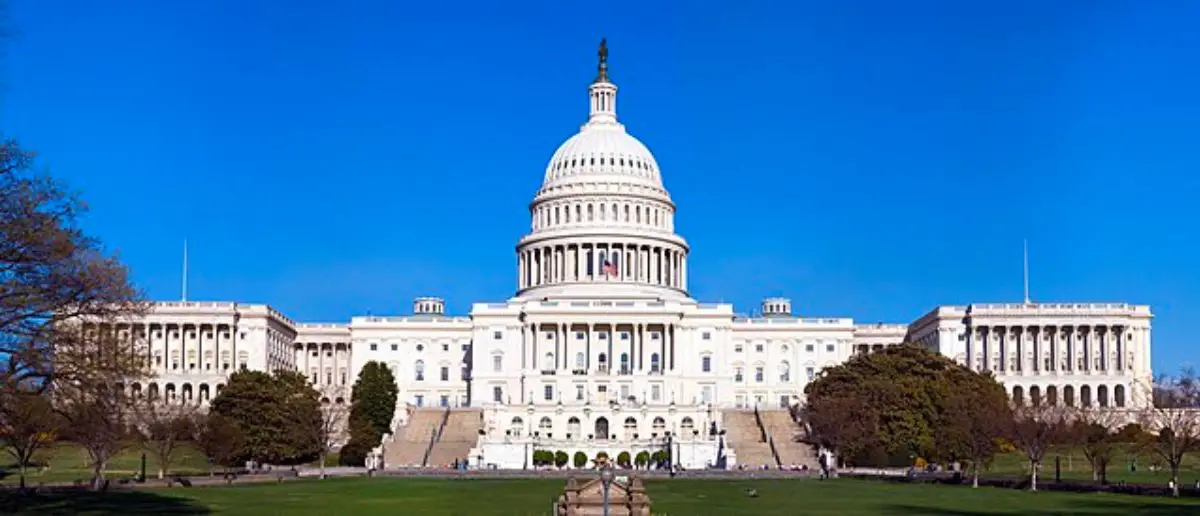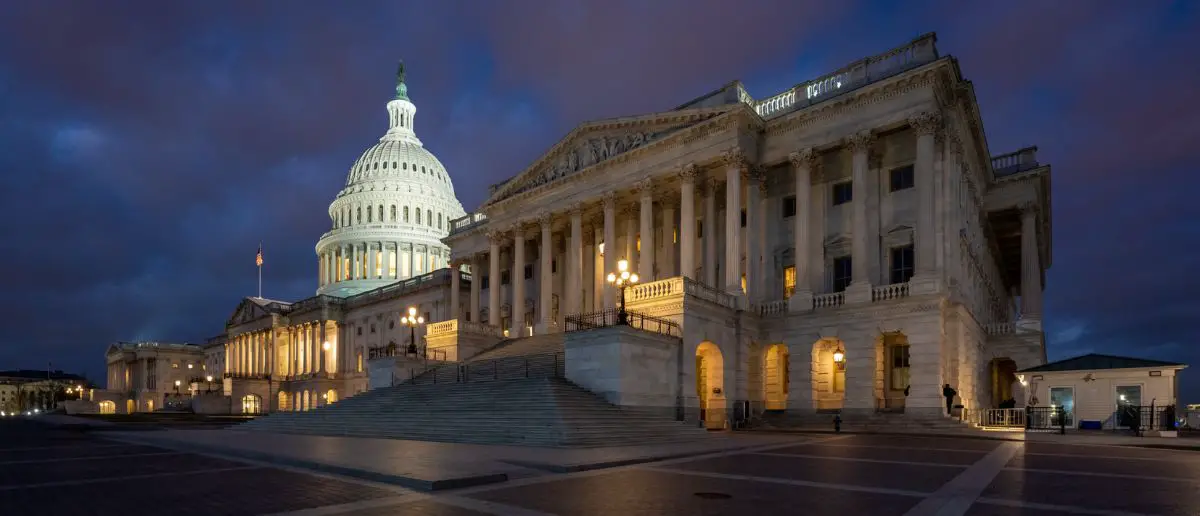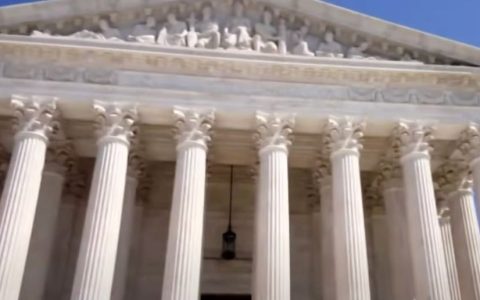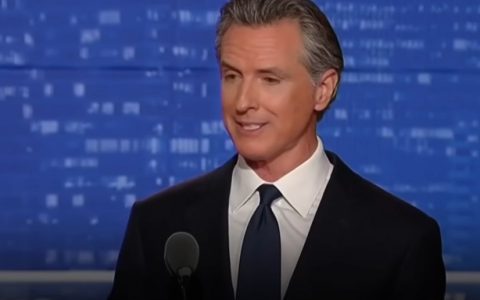
Republicans control all of Congress and the White House. President Trump wants to move fast.
And Congress just reached a decision that has the entire Trump White House in a frenzy.
Trump’s Tax and Spending Blitz Faces GOP Pushback as White House Scrambles for Votes
President Donald Trump’s ambitious “one big, beautiful bill” cleared a significant obstacle Sunday night, as the House Budget Committee advanced the sweeping tax and spending package in a tense 17-16 vote. The move keeps the Trump administration’s legislative priority on track, with House GOP leadership aiming to send the budget reconciliation package to the Senate by week’s end. However, the White House is facing mounting pressure from conservative Republicans demanding deeper fiscal reforms, signaling a rocky path ahead.
The vote came after four conservative fiscal hawks—Reps. Chip Roy of Texas, Ralph Norman of South Carolina, Josh Brecheen of Oklahoma, and Andrew Clyde of Georgia—shifted from opposition to voting “present.” Their decision allowed the bill to move forward, following intense weekend negotiations with House GOP leadership. The quartet, all members of the House Freedom Caucus, had previously derailed the package on Friday, citing concerns over its fiscal responsibility.
“As written, the bill continues increased deficits in the near term with possible savings years down the road that may never materialize,” the House Freedom Caucus posted to X on Sunday following the vote. “We are determined and committed to working through the remaining obstacles within this bill, and we stand with our colleagues Reps. Roy, Brecheen, Clyde and Norman in the Budget Committee who voted present to signal the need for further negotiations.”
The fiscal hawks’ initial rejection of the bill stemmed from its slow phaseout of green energy tax breaks from the Biden-era Inflation Reduction Act and insufficient Medicaid reforms. Their Friday “no” votes, alongside the committee’s Democrats, forced GOP leadership to scramble over the weekend to address these concerns. The Budget Committee reconvened after 10 p.m. Sunday to reconsider the package, with changes proposed to accelerate savings.
House Speaker Mike Johnson, under pressure from the White House to deliver Trump’s signature legislation, made a surprise appearance at the Budget Committee vote to engage directly with the holdouts. Johnson told reporters he remains optimistic about meeting the Senate deadline. “We have several more [details] to take care of, but I’m looking forward to very thoughtful discussions, very productive discussions over the next few days, and I’m absolutely convinced we’re going to get this in final form and pass it in accordance with our original deadline, and that was to do it before Memorial Day,” he said.
Negotiations over the weekend yielded commitments to accelerate Medicaid work requirements and terminate IRA green energy subsidies by 2028, according to Punchbowl News. Rep. Norman, one of the holdouts and a member of the House Rules Committee, confirmed to reporters that he and his colleagues received written assurances addressing some of their demands. “It’s a lot better than what it was,” Norman said, though he emphasized that further Medicaid reforms, including adjustments to the federal medical assistance percentage (FMAP), remain a priority.
The package now heads to the House Rules Committee, which will consider it in a vote scheduled for Wednesday at 1 a.m. before it advances to a full House vote. The tight timeline reflects the White House’s urgency to push the bill through, as Trump’s team seeks to cement a major legislative victory early in his term. However, the administration faces resistance from within the GOP, particularly from fiscal conservatives who argue the bill’s $1.5 trillion in savings over ten years falls short.
🚨 #BREAKING: President Trump’s One Big Beautiful Bill, which includes NO TAX ON TIPS, has officially PASSED the House Budget Committee
This is a HUGE win for President Trump! 🇺🇸🔥
pic.twitter.com/vv3ZCzAXzK— Nick Sortor (@nicksortor) May 19, 2025
House Budget Committee Chairman Jodey Arrington defended the package, noting it incorporates the most significant savings of any budget reconciliation legislation since the 1974 Budget and Impoundment Control Act. According to House Republican leadership staff, nearly every committee involved in drafting the package has exceeded its savings targets or spent less than allocated. Yet, fiscal hawks remain skeptical, pointing to the delayed implementation of reforms, many of which won’t take effect until after Trump’s term ends in January 2029.
The United States’ loss of its last triple-A credit rating on Friday evening has added fuel to conservative demands for more aggressive spending cuts. Rep. Roy, a vocal critic of the bill’s current form, took to X to express his concerns. “[T]he bill does not yet meet the moment – leaving almost half of the green new scam subsidies continuing,” Roy wrote, referring to the IRA’s green energy tax breaks.
“More, it fails to end the Medicaid money laundering scam and perverse funding structure that provides seven times more federal dollars for each dollar of state spending for the able-bodied relative to the vulnerable. This all ultimately increases the likelihood of continuing deficits and non-Obamacare-expansion states like Texas expanding in the future. We can and must do better before we pass the final product.”
The White House’s push for the bill has also sparked tensions with moderate Republicans and populist-leaning GOP lawmakers. Sen. Josh Hawley of Missouri, known for his populist stance, is among those expected to resist deeper Medicaid reforms, which could complicate Senate negotiations. The package, a composite of bills from 11 House committees, was designed to meet specific spending and savings targets, but bridging the gap between GOP factions remains a challenge.
Conservative holdouts have made it clear that their support in the House Rules Committee and beyond hinges on further concessions. Norman and his allies are pushing for changes to the FMAP, which determines the federal government’s share of Medicaid funding for states. Such reforms, they argue, are essential to curbing long-term deficits and ensuring fiscal discipline.
The Trump administration, eager to avoid a repeat of Friday’s setback, has leaned heavily on Speaker Johnson to unify the party. Johnson’s direct involvement in Sunday’s vote underscores the White House’s determination to keep the bill on track. With the House Rules Committee vote looming, GOP leadership is bracing for another round of intense negotiations to satisfy fiscal hawks without alienating moderates.
The bill’s proposed changes, including accelerating Medicaid work requirements to December 31, 2026, and phasing out IRA subsidies by 2028, reflect the influence of conservative negotiators. However, these adjustments have yet to fully appease the Freedom Caucus, which continues to demand more immediate and substantial reforms. The White House, aware of the tight legislative calendar, is pressing for quick resolution to avoid delays that could jeopardize the bill’s passage before Memorial Day.
The fiscal hawks’ decision to vote “present” rather than “no” on Sunday suggests a willingness to engage, but their insistence on further changes keeps the pressure on. With the Senate vote approaching, Trump’s team is working to maintain momentum while addressing the concerns of a restive conservative flank. The House GOP’s efforts to refine the bill come as the White House emphasizes the need for a unified front. The administration has framed the package as a cornerstone of Trump’s economic agenda, designed to deliver tax relief and rein in federal spending.
Stay tuned to the DC Daily Journal.





